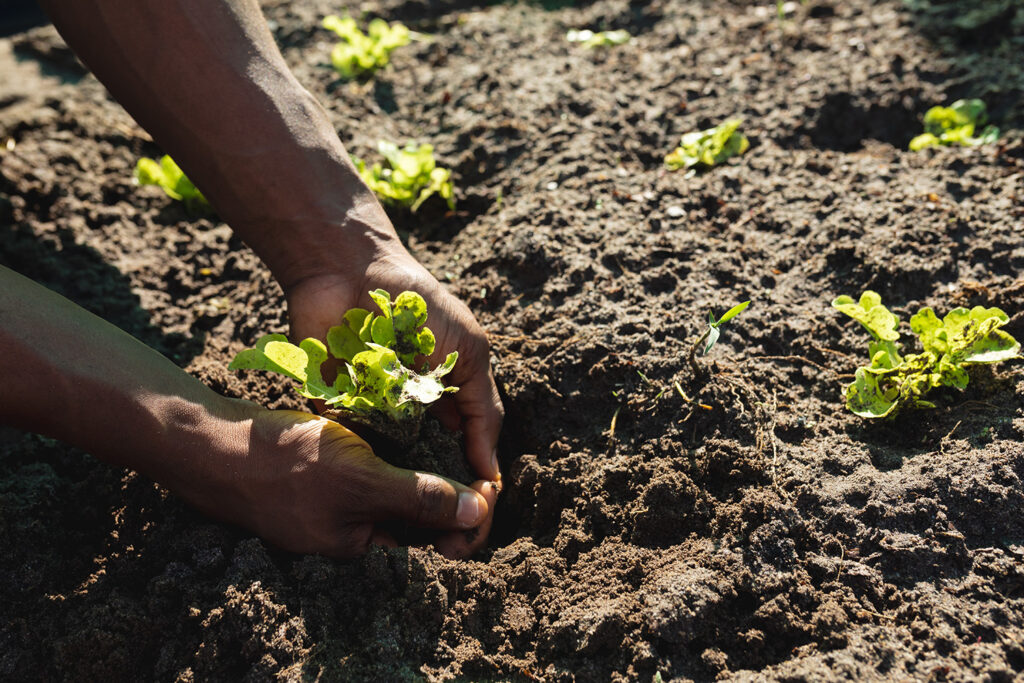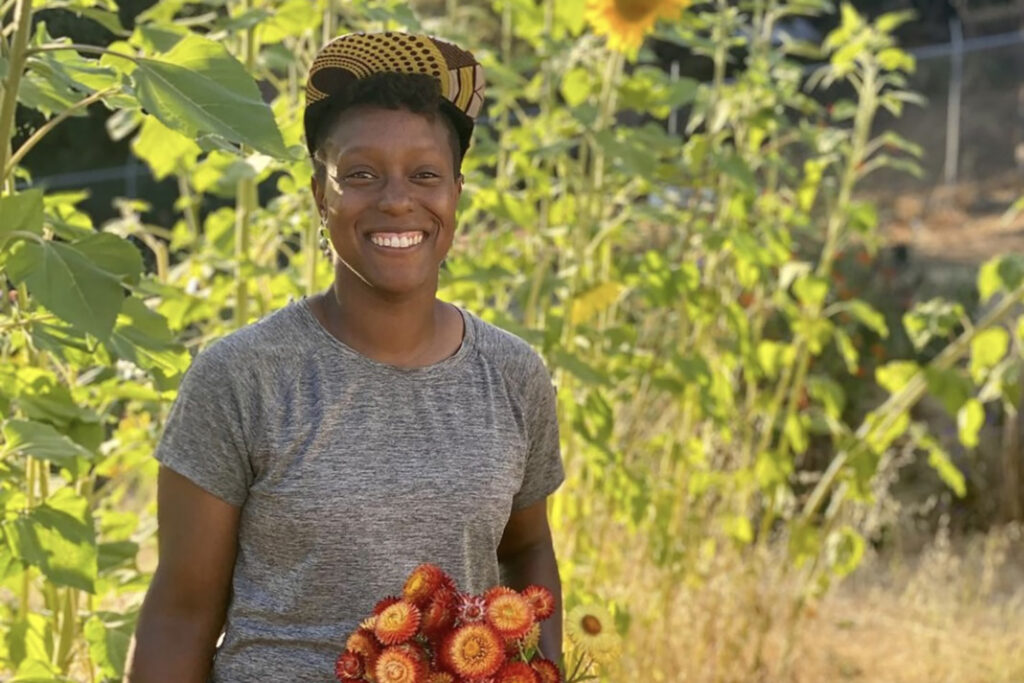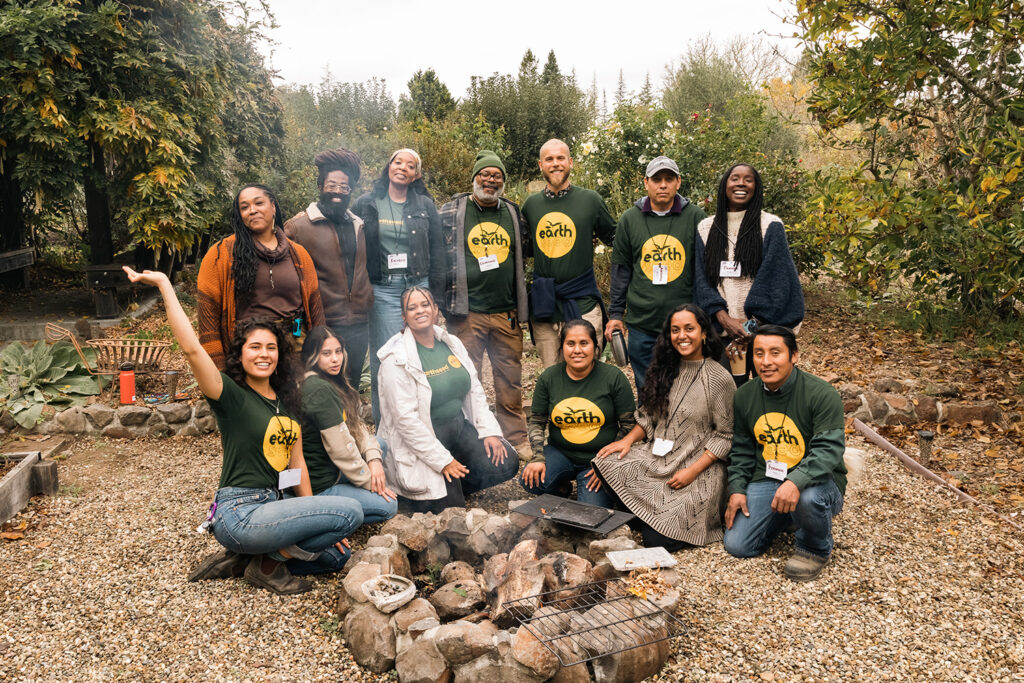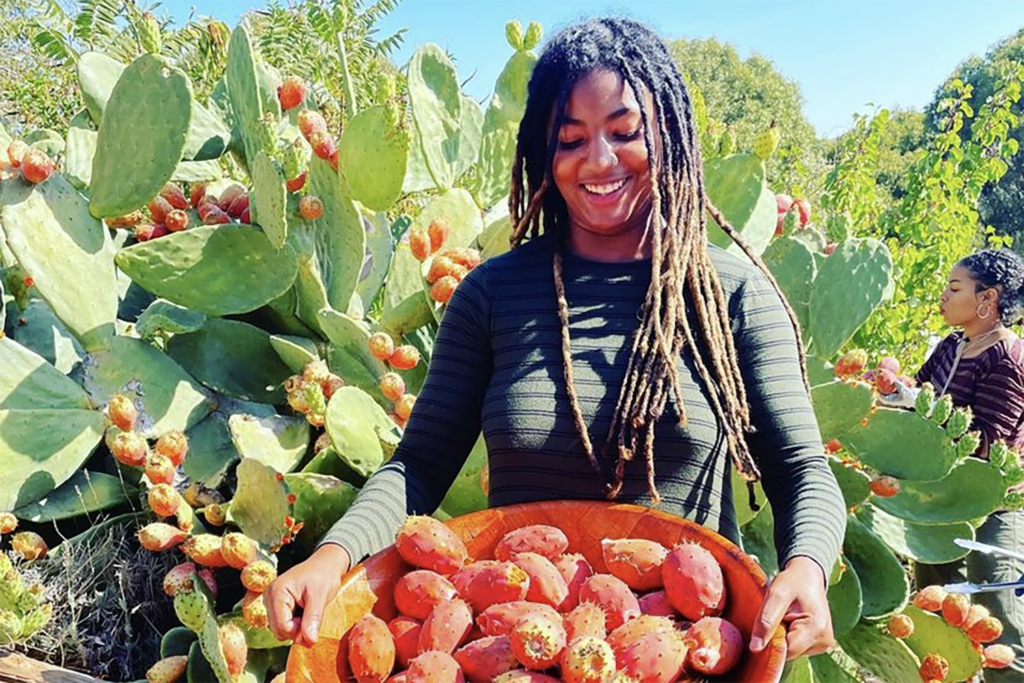Support the Justice for Black Farmers Act and These Black-Led Farms
Selina Knowles, Communications Coordinator
February 17, 2023

With only 429 Black farmers out of 124,000 in California and 44,629 out of 1.3 million (1.4%) nationwide, the U.S. is long overdue in confronting the history of racism that has shaped this disparity and taking action to move toward a more just and equitable food system. During Black History Month and in anticipation of the 2023 Farm Bill, we are taking a look at the proposed Justice for Black Farmers Act, which would take a historic step toward restoring land and protections for Black farmers, along with some grassroots efforts to galvanize change.
Justice for Black Farmers Act
Although there were nearly 1 million Black farmers in the United States in 1920, there are now fewer than 50,000 remaining. “There is a direct connection between discriminatory USDA policies and the enormous land loss we have seen among Black farmers over the past century,” said Senator Cory Booker (NJ), who first introduced the Justice for Black Farmers Act in 2020.
The United States Department of Agriculture has a long history of discriminatory behavior, exposed in a class action lawsuit 1997, when Timothy Pigford and 400 Black farmers charged the agency with discrimination when distributing loans. The case ended in one of the largest civil rights settlements in United States history, but racist practices unfortunately continued.
Last year, with the passing of the Inflation Reduction Act, $2.2 billion was put forward to compensate farmers who have faced discrimination by the USDA. However, the act fell short of specifically naming and compensating Black farmers.
Now, legislators are reintroducing the Justice for Black Farmers Act to be passed in the Farm Bill, an omnibus package of legislation encompassing all things related to food and agriculture. This act includes policies that would protect current Black farmers’ land as well as grant land to new Black farmers.
Through the Justice for Black Farmers Act, an Equitable Land Access Service would be created within the USDA. This would include a fund that devotes $8 billion annually to buying farmland and granting it to new and existing Black farmers, with a projected goal of making 20,000 grants per year over nine years.
You can help hold the USDA accountable and support this important step toward repairing an long-unfulfilled promise of “40 acres and a mule.” Join the conversation about the upcoming Farm Bill by reaching out to your local senators, and fill out the National Black Food and Justice Alliance’s endorsement form. Below are a few national Black-led advocacy efforts and local Black farms you can learn more about and support.

Black-Led Agricultural Efforts and Farms to Support
National Black Farmers Association is a nonprofit organization, founded by fourth-generation farmer John W. Boyd, representing African American farmers and their families in the United States. NBFA’s education and advocacy efforts have been focused on civil rights, land retention, access to public and private loans, education and agricultural training, and rural economic development for Black and other small farmers.
National Black Food and Justice Alliance represents Black urban and rural farmers, organizers, and land stewards working together toward an intergenerational, urban and rural movement to map, assess, train, and deepen the organizing, institution building, and advocacy work protecting Black land and work towards food sovereignty.

Brown Girl Farms, located in California’s Hayward hills, is managed by founder, Ashlee Johnson-Geisse and her wife, Jen Johnson-Geisse. Brown Girl Farms serves to provide beauty and care to the community through market vegetables, African American heritage crops, and unique seasonal flower bouquets.

EARTHseed Farm is an organic farm and orchard located on the ancestral lands of the Coast Miwok and Southern Pomo Peoples in Sonoma County, California. EARTHseed Farm is operated and rooted in Afro Indigenous permaculture principles, and built on the long legacy of earth wisdom traditions of people of African descent.
Farms to Grow is a nonprofit organization, founded by Dr. Gail P. Myers, which operates the Freedom Farmers Market in Oakland, to help fill the growing gap of Black farmers and traditional legacy foods, working in partnership with farmers, business owners, and food makers. You can learn more about the Freedom Farmers Market in our interview with Dr. Myers.

Soul Flower Farm is a small organic farm located in the San Francisco East Bay Hills of California. They are committed to contributing to social equality by leading accessible environmental workshops, apprenticeships, and skill shares. You can find them at Berkeley and Oakland farmers markets.
Scott Family Farms is an organic produce distributor run by Will Scott Jr. and his family in Fresno. Their goal is to reintroduce Southern specialty crops, a cornerstone of the traditional African American diet, into black communities. Scott Family Farms also provides training for Black farmers in Fresno.
TAC Farm is continuing Colonel Allen Allensworth’s vision of self-determination and economic development through sustainable agriculture. Colonel Allensworth was an escaped slave who served in the Union’s military during the Civil War, then purchased land and founded Allensworth in 1908 based on the principle of economic self-determination.
This is a non-comprehensive list, and you can find more Black owned California farms here. Also, at the Ferry Plaza Farmers Market during the summer, support Balakian Farms and Lucero Organic Farms.
Topics: Equity, Food justice
